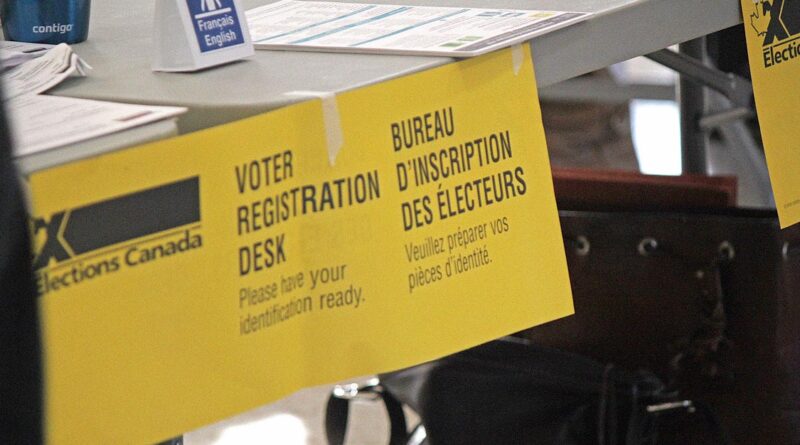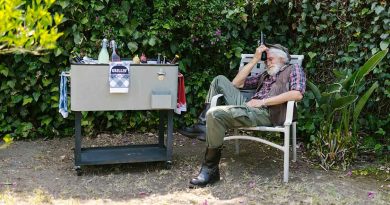Where Does This Apathy Come From?
Things That Matter, By Dennis Rizzo
We have had an election called. Federally, we’ve had the switch over from Trudeau to Carney and then to ____? We have an opportunity to select our representatives.
Voting responsibility is something we hear about during campaigns, when each candidate wants you to mark your “X” for them. Afterward the news is full of stories about how lack of voter turnout affected the results one way or another. Rarely do we consider the issue of voting in between elections. Is it unimportant? Is it that we feel there is no purpose to voting? Are we simply too engaged in making a rent payment to care?
In the past federal election 62% of people registered actually showed up to vote. The turnout has hovered around that mark for several decades. It is about average for the rest of the world, with some countries higher and others lower. What’s confounding would-be ballotters? Could it be the system? Could it be indifference?
As an ex-pat I initially found the Canadian approach confusing. I mean, we don’t elect our primary leader and the legislative body has something called Question Period.
I have to admit, my introductory experience to the interaction of our representatives was when my daughter served as a page at Queen’s Park. It wasn’t pretty.
The members threw convoluted queries at one another, and the recipients kept answering to the Speaker. I was not sure if this was a deflective strategy or simply because they didn’t know the name of the member making the enquiry. I then learned this is the modus operandi of parliamentary legislatures. Apparently it is designed to avoid long, disruptive sparring matches between mutually disengaged participants. It doesn’t seem to achieve that goal very well.
And then there is the allotted speaking time. In most cases it generated a familiar feeling – the same one I used to get in university during the two hour medieval history lectures given in a purposeful monotone by the least articulate member of the faculty.
Occasionally, a light of brilliance peaks through. A member will address a concrete issue and a responding member will answer in clear, certain terms. I’m not putting that to a bet.
What does all this have to do with voting?
The answer is easily discerned by observing the chaos happening down south. Elections decide exactly who will be in position to run our collective government. Once elected, they can be tough to remove. In the present day, it would appear even blatant corruption and immorality has no bearing on the ability to run for and obtain elected office. We are indignant – yet titillated – when we hear of public figures behaving badly. Who doesn’t like a juicy tell-all story?
Perhaps this tendency toward voracious consumption of intramural muck slinging skews our perceptions. Perhaps it is why young folks decide politics is passe and folks on both ends of the spectrum are quick to distrust any government of the other side. But this does not have to be the norm. A determined and conscious voting public can make the decision on who will be the participants in Question Period.
We do our best to wade through the assorted promises, distortions, misquotes, and enabling statistics and arrive at our choice. Once elected, we have to accept that the majority vote will carry until the next election. (I am purposely avoiding discussion of proportional representation as that is fuel for another diatribe.)
If we look at some data we can explore possibilities for this public distrust of government. An Angus Reid poll in November 2024 indicated that four-in-five Canadians believe money laundering (82%), political corruption (86%), business corruption (91%) and tax evasion (91%) are common occurrences in the province they live in. This certainly indicates an overall feeling of gloom and doom when it comes to governance. The key word is believe.
Let’s look at corruption, since that’s the focus in politics. What do we know?
Transparency International Canada rates countries on a 0-100 scale of corruption. Canada has consistently been at the 74-76% range, placing it in the top 12 least corrupt countries. They say, “The CPI scores 180 countries and territories around the world based on perceptions of public sector corruption. The scores reflect the views of experts and surveys from business people, not the public.”
We should look at the reality of serving in public office. Properly done, it is an unparalleled commitment of family, time, and personal privacy. We should also look at the responsibility of we, the voting public, to make an educated and thoughtful decision, and, to act on that decision with our vote.
Being in public office is a trust placed by the constituency. While it may feel like we individually have no say in the performance of the representative, that isn’t totally the case.
Yet, while many people feel corruption is rampant in our system; that seems to be a misconception. Could it be this overall belief has been triggered by the tendency of news outlets to focus on the sensational and the negative. The sense of apathy felt by younger voters might just be a feeling of exasperation with the flurry of political analysis. Frustration leads to disengagement. Yet, our youth are the key to a truly democratic government moving forward.
Voting has become much easier than it used to be. You can still wait to voting day and cast yours in person. You can also go in person to early voting locations, usually open during evening hours as well as during the day. You can also request and send in a mailed ballot.
(Image Supplied)

Dennis Rizzo joins SUNonline/Orillia as a columnist writing on big issues affecting ordinary Orillians. He is an ex-pat Yank from New Jersey. Orillia, Ontario. Canada is his adopted home, but he has brought along a degree of puckishness and hubris. Dennis spent more than 30 years working in the field of disabilities, with some side trips to marketing and management. He presented and keynoted for many conferences and served on a President’s advisory committee. Dennis is the author of several journal articles and booklets in the field of disabilities and work and five non-fiction books, including A Brief History of Orillia – Ontario’s Sunshine City. He recently republished a novel set in 1776 and a mystery set in 1860. He also enjoys sitting in on music sessions around town when he can.




